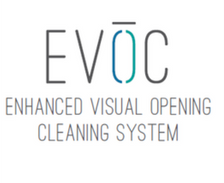Since 1929, Barnhardt Manufacturing has led the market in manufacturing purified cotton. Leadership of this longevity requires a commitment to innovation, and responding to customer needs and market demands.
New market applications demand new standards for the cleanest, most pure, purified cotton available, and Barnhardt has responded with a proprietary set of processes referred to as EVŌC, shorthand for Enhanced Visual Opening and Cleaning System. The newest innovation from the Barnhardt team addresses an omnipresent challenge in working with cotton—the difference between consumer perception of the product and the natural realities of the plant.
Ask any consumer what their associations are with the word, “cotton,” and you’ll hear attributes like puffy, clean, pure, white, soft, fluffy, and absorbent. But that’s a carefully cultivated perception of cotton, while the natural reality is quite the opposite. When we receive bales of cotton from the gin, it’s often dirty, rife with plant matter, soil, seeds, and even nasty plastic trash from the fields. Upon receipt, it’s our job to meticulously remove all of these foreign substances from every fiber in order to produce that clean, white, pure cotton fiber that consumers expect from their feminine care and baby care products. Nobody wants to open a packet of tampons or diapers—the products we use on the most sensitive parts of our bodies—and see anything less that pure, soft, whiter-than-white cotton.
While prior technologies for cleaning and purification effectively answered yesterday’s challenges, the ever-higher standards of consumers demand new innovative solutions. With the advent of EVŌC, Barnhardt now delivers the cleanest, purest cotton on the market today. Now, nonwoven manufacturers and product development teams have a choice: rather than resorting to plastic-derived synthetics, they can opt for a natural fiber product that consumers actually prefer, that’s also better for the environment. EVŌC delivers the promise of cotton—for manufacturers, consumers, and the environment—for the most discerning applications for 100 percent cotton nonwovens, including very lightweight nonwovens purposed for hygiene products and wipes for personal and baby care.
